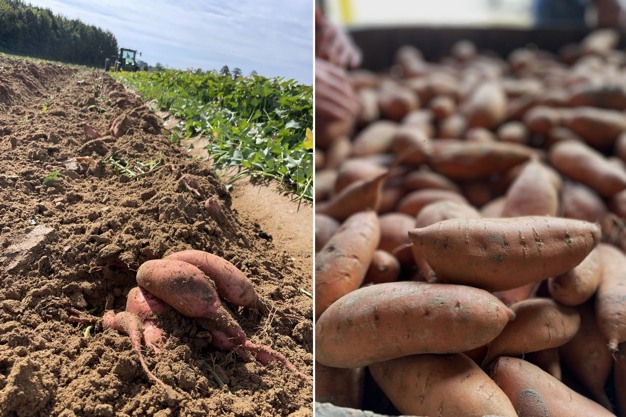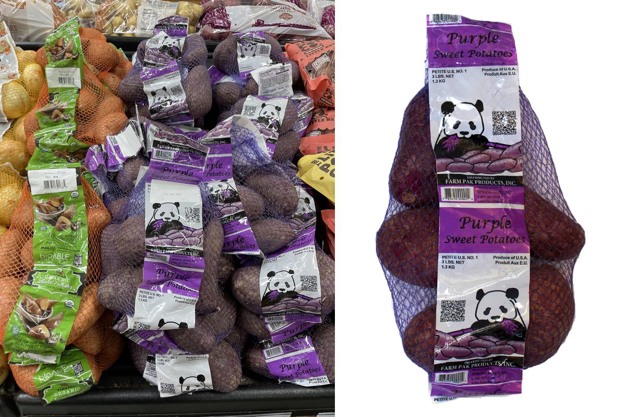After an unusual year for farming in eastern North Carolina, sweet potato harvest kicked off the first week of September. A severe drought started late May and lasted all the way through early July. "It was finally broken by unrelenting rain," says Jacy Barnes Clapp with Farm Pak Products. Since mid-July, conditions have been very wet. While Farm Pak's sweet potatoes fared well through this unusual weather, the wet conditions brought on periods of rain and exacerbated by several tropical storms, they have slowed the company's harvest pace compared to previous years.

Interest in new varieties
Current demand is good and consistent. It is expected to increase as cooler months and U.S. holidays approach. "We are witnessing increasing curiosity for new varieties," shared Barnes Clapp. Covington continues to be the main variety by far and is considered the best-eating orange-flesh sweet potato. However, Farm Pak also grows Murasaki, a red-skin white-flesh variety, and Purple Splendor, a purple-skin and purple-flesh variety, that reach other markets and demographics.
Distribution is focused on the domestic market right now. "We usually start exporting in November, with the bulk of exports taking place between February and early June. That's the time when warmer temperatures and vacations slow down consumption domestically," said Barnes Clapp.
Labor costs continue to be a concern. They heavily weigh in the sweet potato industry as all harvesting in North Carolina is still done by hand. "Our production practices don't allow for mechanical harvesting as it could damage the skin. As a result, labor costs represent 60 percent of production costs." Although pricing of sweet potatoes is expected to be higher as a reflection of the higher labor costs, the price of sweet potatoes hasn't increased at the same rate production costs have gone up.

Purple Splendor sweet potatoes.
Fuyu persimmon business
In addition to sweet potatoes, Farm Pak also has a persimmon business. It started in 2006 as a learning opportunity and project for third-generation Barnes Farming owner, Josh Barnes. At the time, he was just 13 years old, but similar to his sister, Bethany, and the watermelon side of the business, Josh was eager to grow and manage a crop of his own. With the help of his dad and Barnes Farming president, Josh purchased and planted the seedlings in 2006 with the first harvest happening in 2009. Josh managed the orchard through his high school and college years, and the earnings from the fruit helped fund his college education.
At the time, a family friend suggested Fuyu persimmons as a niche crop with a growing market. Fuyu persimmons are crisp and mildly sweet compared to the mushy, jammy American persimmons that are native to the Southeastern U.S. and rely on autumn's first frost to ripen their fruit. Tree fruit also piqued Josh's interest because they have the benefit of utilizing sloped land that is prone to erosion and not conducive to sweet potato farming.
Eighteen years later, the persimmon business is still going strong. Josh is now Barnes Farming's vice president and still manages the persimmon orchard. Harvest started the second week of September and will continue until late October or early November, depending on the weather. "Demand for our persimmons is good as customers have been waiting for the local tree-ripe flavor that we have to offer." Although Farm Pak's persimmons are distributed nationwide, they are mostly available on the U.S. East Coast.

IFPA Global Show
From October 17-19 Farm Pak will be exhibiting at IFPA's Global Produce & Floral Show in Atlanta. Meet the team at booth C2445.
 For more information:
For more information:
Jacy Barnes Clapp
Farm Pak / Barnes Farming
Tel: (+1) 252-459-3101
[email protected]
www.farmpak.com










